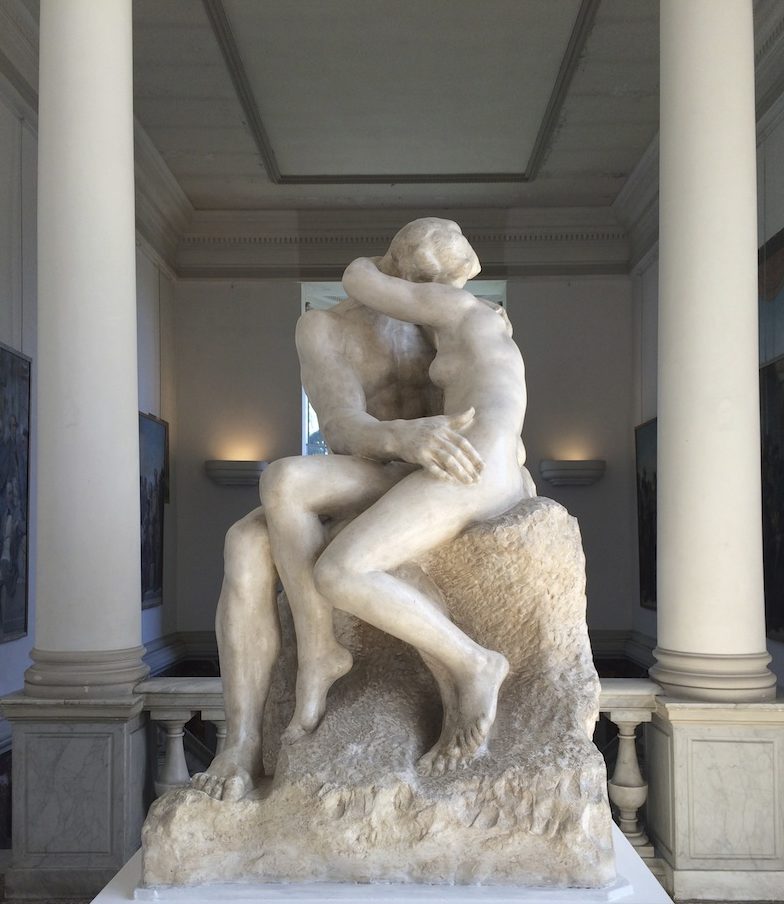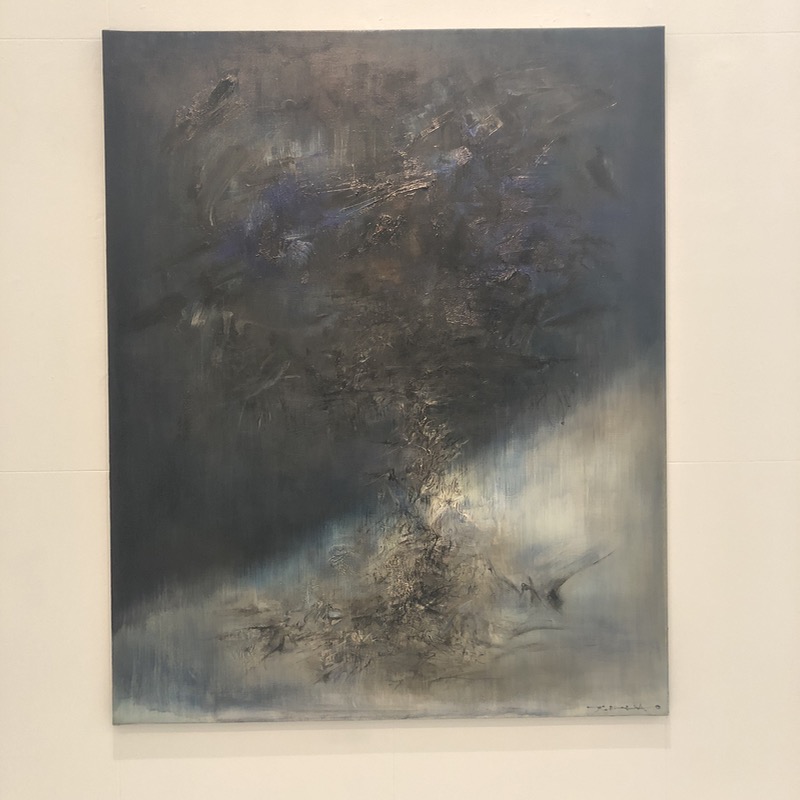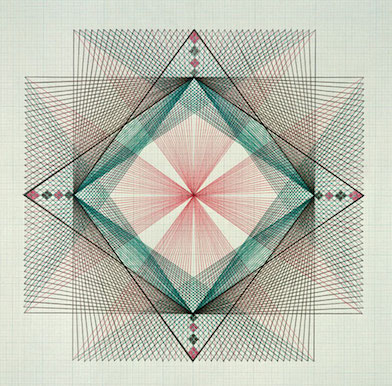Instinct is magic, uncovering the invisible in logic
Instinct is that exact sense the magic books muse about and spiritual beings passionately embrace, but even science is puzzled by its source. It is here right in front of you and inside you, yet often our awareness is blind to its enlightening spell. Our instinct uncovers the invisible that logic taints with reason. In some situations, as in art and child rearing, it is more accurate and guides us better than analytical thinking. Yet, the veil is hardly transparent and one has to work on expanding consciousness. As mysterious as love, our gut feeling is powerful.

Gratefully, humans have done it for millennia and can teach us diverse techniques on how to become more sensitive to the fine signals of our subconscious and unconscious mind, perhaps even the Universe, to benefit our wellbeing.
Change rules life, the visible and even more the invisible world, so we better accept it and go with the flow.
From China, through Japan, India, Celtic traditions, to the Native American connection with nature and the spirits, instinct was highly valued by these cultures that took their time to focus on the inner workings of the mind. Even the foremost contemporary physicists like Carlo Rovelli do not have a definitive prove of objectivity of the passing of time. Einstein wrote that these “who believe in physics, know the the distinction between past, present and future is nothing more than a persistent, stubborn illusion”. Is our instinct purely subjective or can it be objectivised? There are still plenty of questions to which science has no answers, but who cares if you do experience this phenomena of intuition? Gut feeling can be overwhelming as we do not understand its power. Therefore one can believe that instinct is magic, uncovering the invisible in logic.

Is instinct connected with beliefs, emotions, self-preservation or survival?
True, something can feel right just because it is culturally or morally approved of in the current time. Yet, this is not the whole story of humanity. Our emotions are more complicated than some artificially created rules outlined by the authorities. Overtime, if we ignore our instinct, emotions accumulate, perhaps causing a mental breakdown and a bodily illness.
Chronic diseases and pain are often described as being the result of one’s lifestyle. Yet life is not just what we eat and how we move, it is also how we think and how our emotions bubble and play inside us.
Is your heart listening to a joyful sonata or is it a screeching sound of displeasing noise?
By the mainstream science dismissed, but the millions who were helped by Dr. John Ernest Sarno prove that emotions affect our health sriously in the longterm. The NYU medic researched emotional impact on health for almost seven decades of his clinical work (he died in the US in 2017 aged 93). This is an extremely challenging prospect like any tenets to prove by the so far stablished scientific methods. The human mind and the thoughts that we are not even fully aware of in the moment, as they were pushed into the unconscious far in the past, are hardly visible to us. The objective judges of experiments then are in a limbo. Studying human mind is the focus of neuroscience, yet can only chemical and electrical proceses and reactions show us everything that is going on in our head which processes millions of thoughts and interactions all the time? The experience-based research and the positive results of Dr Sarno’s therapeutical methods suggest an emotional link.

Placebo effect fascinated me during my four years studying pharmacology. My gut, heart and intellect were moved when I realised how much our mind can influence visibly over time. Changing atoms, molecules into the chemistry we told it through the power of the mind.
Very powerful with pain management. It is said that each of us has an individual pain threshold. Explain then how comes that some yogis in India “learn” how to walk on fiery hot charcoal or that excruciating surgeries were performed without anaesthesia for a vast part of our history? The magic in placebo is belief, it seems. One is persuaded that whatever is being done helps. Like hope in religion. We crave for the things to be better not just to survive, but to be well. Life is tough so some of us hope that it will be much better in heaven once we die or that our next life will reincarnate into something better so we behave accordingly to improve our karma.


As a creative individual, I often follow instinct in the art of others. Why do I connect with some artwork, while other, even very famous painting, sculpture or a ceramic bowl do not tell me anything? Communication must go two ways. If one side is silent, there is not a wholesome interaction and thus a meaningful connection. The sculptures by Rodin, the lotus ponds by Monet, the naturalist creations by Andy Goldsworthy, the peasant dance by Filipp Malyavin, the female spirituality in Jia Juan Li’s ephemeral beauties, the blast of energy in the vast murals by Zao Wou-Ki, Wilhelm Leibl’s realistic portraits or the pendulum graphics by Emma Kuntz speak to me so eloquently that my breath stops when I encounter these artworks. Rilke’s poetry and some sonnets of Shakespeare rise my vibrations too as Lenny Kravitz sings. Kandinsky described instinct well in his famous essay titled Concerning The Spiritual in Art, read it for free here.

Natural world transpires with instinctual behavior, and we are part of nature
Nature inspires me too. The gist of it is instinctual. Observing the behavior of birds chirping fascinates me. So do curious squirrels with their tricks to lure you into their world. The scent of pine trees or the sunshine-kissed broom shrub in Provence draw me so entirely into their own fragrant space. All my senses find their treat in nature, instinct including. Animals use it to escape death and suffering or to mate. Perhaps to avoid being captured, I shall use my human instinct too. Liberty can protect us when we connect the choice with our gut feeling but instinct can bring us suffereing or be deadly too.
Last year I witnessed the migrating Monarch butterflies mating in California. In awe of their sheer numbers, I was struck how many died or were injured during their annual pursuit to multiply. The lesson was that one does not have to reproduce at any cost. What is it for, if one’s life is lost as the result of this sexual process? I do not care for my genes to survive, but my instinct told me that it will be my own work that can become immortal. Eventually, this pursuit can be deadlly for me. It can carry the message, my intellectual DNA, for the future generations to be inspired by. Perhaps my reason is justifying my scribbling and indulgent poetic musings. Yet, we were born with instinct. I do not fight it, just try to observe when it operates.

Being open to and read from our experience is not easy in our distracting world. Our focus is often broken, stolen away by materialism, emotions, and the fancy tools invented by technically savvy minds. Either they could not foresee the trouble or their intentions were not pure, clouded by desire for wealth or recognition. It took me three decades in this body to tune myself to and listen to my instinct. Life has always fascinated my curious mind, yet now I see more in every gesture. Mundane experience had grown beyond the limitations set before by my analytical reasoning. Intellect soars when both are connected, the reason with the emotional intelligence. Life becomes a feather that floats above the ground. Content with whatever direction the wind blows us into. Still having purpose and meaning means being in connection with oneself. Do not be thrown into the dungeon of darkness when something you planed so precisely does not materialise as you imagined and sketched it to become.


How do we connect with our instinct?
Ancient mindfulness practices like qi gong, meditation, tai-chi, yoga, martial arts, creative work, walks in nature, they all free us to be in the moment as it is and to observe our surroundings as they truly are, untinted by our emotional baggage.
Practice openness, acceptance of what is. Change is natural and if we fight it too hard, we not only exhaust our limited life energy, but we create weighing negative emotions along with the battle.
An attitude shift through reading about the experiences of other humans not afraid to reveal and share their heart on the plate with you.
Daily me time when we reflect upon the day and how its goings affected us.

Go to art galleries, visit artist studios, but above all seek not commercially-intended art, but that which connects with your own self, that part that feels right or connected in some way. Then you can explore overtime, there cannot be rush on such delicate matters as one’s instinct and spirit, why you personally “see” something more than institutionalised, superficial beauty in it. Like the spark in the eyes of a lover. Not the colour, neither the shape, the heart, even more lastingly the soul is not misled by something that changes faster than the nature inside a human being. For that we need to develop our instinct.
Intuition does not need to be precise, perhaps we might misunderstand it and it can even lie, yet it is a voice so fascinating that we shall not ignore it. Truth is such a manifold concept, whether subjective or objective, it may change as time flows. As I pursued journalism with such a noble goal on my heart, I learned that truth can have many forms. Like a scientist, who realised that there are no objective data, no answers to some fundamental questions of life. Even thy are tempted by instinct. The mystery of its origin lurs us to its arms. Let’s embrace, I say.



Pingback: Light poem - La Muse Blue